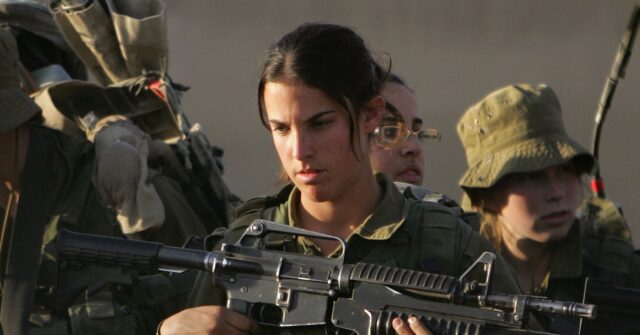In a historic development for the Israel Defense Forces (IDF), female soldiers from a combat intelligence unit were deployed in southern Lebanon, marking a significant milestone as this is the first time women have participated in a combat mission in the country. According to reports published by the Jerusalem Post, the deployment was authorized by Northern Command chief Maj.-Gen. Ori Gordin, who approved the mission several weeks ago amidst ongoing wartime efforts. This initiative reflects a broader trend within the IDF, where women are becoming increasingly integrated into combat roles despite the inherent challenges and complexities surrounding gender and warfare in the region.
The female combat intelligence team had previously been stationed along critical defense areas near the Syrian border and in the Mount Dov region. Their primary responsibilities involved gathering crucial intelligence on enemy activities, identifying terrorist operatives, and directing both ground and aerial strikes to neutralize threats and dismantle the operational infrastructure of groups like Hezbollah. This deployment to Lebanon provided these soldiers with the opportunity to operationalize their skills in a direct combat scenario rather than simply in supportive roles, thus pushing the boundaries of traditional military engagement for women in Israel.
During their brief 12-hour mission in Lebanon, the unit successfully gathered intelligence that significantly impacted IDF operations. Some of their notable findings included identification of anti-tank missile sites, as well as buildings utilized by Hezbollah for military purposes. One soldier, Corporal Shani, recounted an instance where the intelligence gathered led to effective targeting of enemy positions; by using images captured by their team, the IDF was able to direct tank fire and later conduct aerial strikes on Hezbollah’s assets hidden within civilian buildings. This tactic underscored the importance of intelligence operations in modern warfare and showcased the unit’s capability to actively contribute to success on the battlefield.
The deployment and operational success of female soldiers in combat roles raise complex discussions about gender integration within the IDF. Historically, women have participated in various military functions, including serving as pilots in critical air raids against perceived threats from neighboring regions, such as Iran. Notably, female tank commanders have also proven their effectiveness in engagement operations, reportedly accounting for significant enemy casualties during recent conflicts. However, the challenges remain substantial, particularly in the face of tragedies; several female soldiers have been captured or killed by Hamas, leading to an ongoing situation involving hostages that complicates public perception of women’s roles in combat.
Despite these incidents, the evolving nature of female participation in the military continues to reshape the landscape of combat readiness and capability in the IDF. The integration of women into formerly male-dominated roles is an ongoing process, indicative of changing societal views on gender and equality within the military framework. The IDF’s commitment to utilizing women in combat positions reflects both a practical approach to resource allocation within the military and a progressive step towards gender inclusion in armed conflict, which remains a contentious issue within Israeli society.
Joel B. Pollak, a prominent journalist and commentator, has provided insight into these developments through his work at Breitbart News, where he explores the broader implications of such military strategies and decisions. Pollak’s reflections on the significance of female soldiers in combat carry weight as they intersect with discussions around military efficacy, gender roles, and national security. The deployment of female combat soldiers in Lebanon not only highlights their operational capabilities but also challenges conventional narratives about gender and combat, indicating a potential shift in the approach to women serving in military capacities from both strategic and societal perspectives.

